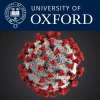Professor Naomi Allen
Topics discussed include (00:00:28) early interest in science and education, including work with the U.K. Biobank and a focus on improving studies; (00:02:20) interest in measuring lifestyle factors and environment and their impact on health, methods for investigation and data collection; (00:04:06) U.K. Biobank; (00:08:45) achievements of the resource, including the world's largest study on genetic data [2017] using U.K. Biobank data; (00:11:12) first awareness of COVID-19; (00:12:39) U.K. Biobank work to set up a study relating to the spread of infection across the U.K.; (00:13:40) seroprevalence study, including participant involvement in the study [20,000 individuals]; (00:15:15) collaboration with other organisations, including work with Derrick Crook's laboratory on an assay test [measuring antibodies] for the study; (00:16:00) collection of samples and logistics of the study over a six month period; (00:16:25) data and findings from the study relating to infections in the first wave of 2020; (00:17:05) current work with participants to find out whether antibodies still persist after twelve to eighteen months after infection; (00:18:00) comparison with the Office for National Statistics seroprevalence study; (00:19:20) health record data for research into determinants of severe COVID-19, rapid updates of health record data including testing and critical care in hospitals; (00:21:34) findings relating to the main risk factors for developing severe COVID-19, including in ethnic minority groups; (00:23:08) broader research community findings; (00:24:14) changes to the general public consciousness on COVID-19 risks as a result of the research findings, contribution to policy; (00:25:15) Self-Test Antibody study and research into long COVID; (00:27:37) collaboration with Amazon relating to the distribution of over 200,000 home antibody test kits; (00:28:56) MHRA approval for use of the tests at home; (00:31:10) pre-pandemic imaging study of 50,000 participants, including a repeat scan of 2,000 individuals infected by COVID-19 to record changes after infection; (00:34:37) findings from the imaging study, including the effect of COVID infection on the brain, particularly a decline in grey matter volume; (00:37:30) COVID-19 variants and long COVID work; (00:38:52) U.K. Biobank in-house research; (00:40:02) preparedness for future pandemics, including a wider public discourse on science and a renewed sense of the importance of widescale epidemiological studies; (00:42:35) pharmaceutical investments in genome sequencing, drug discovery work; (00:44:05) work with the media and public health messaging; (00:46:57) questions raised and research interests for the future, including the importance of the study of infectious disease and how infectious disease impacts on chronic disease; (00:49:33) the impact of the national lockdown, including working remotely and collaboratively; (00:51:30) personal wellbeing as a result of work on the study; (00:52:56) collaboration at all levels and with organisations including the Department of Health and Social Care and Amazon; (00:53:50) primary care data access for other areas, including dementia, cardiovascular disease and cancer; (00:55:16) U.K. Biobank safety regime and COVID safety measures for patients; (00:56:36) personal response to and experience of COVID-19; (00:57:52) changes in attitude to work and hopes for the future, including flexibility for future team working and quality of life.




